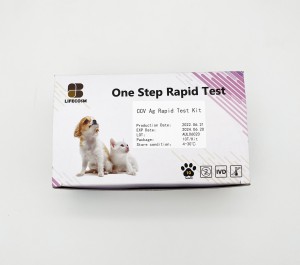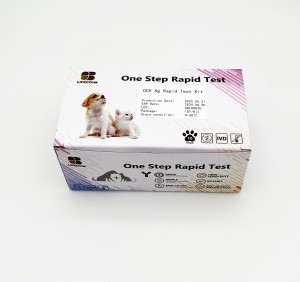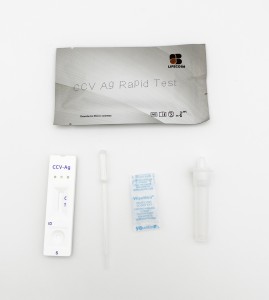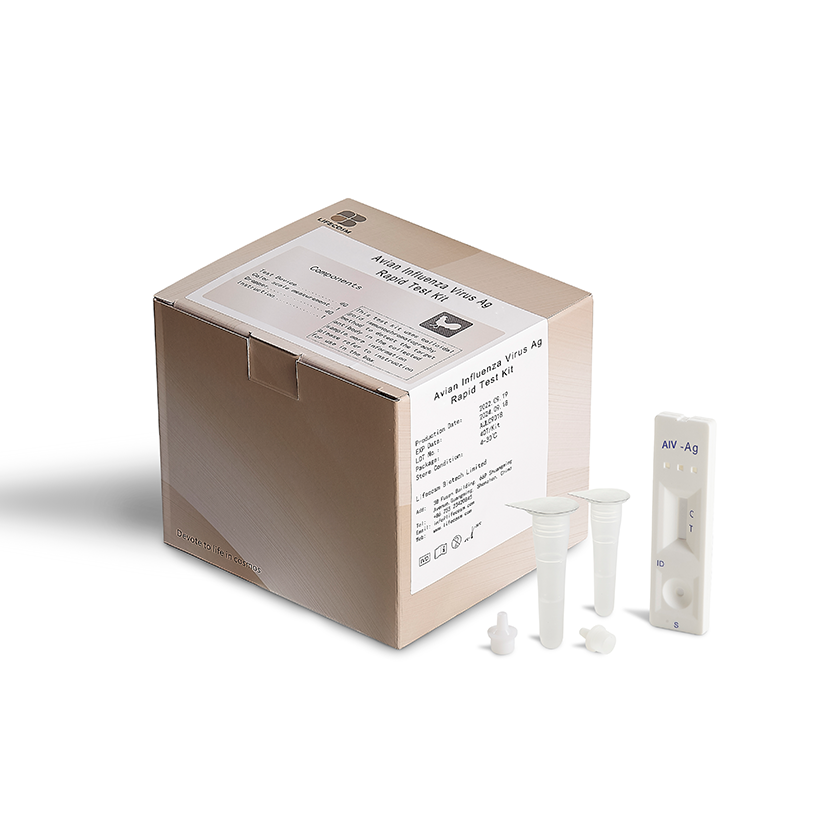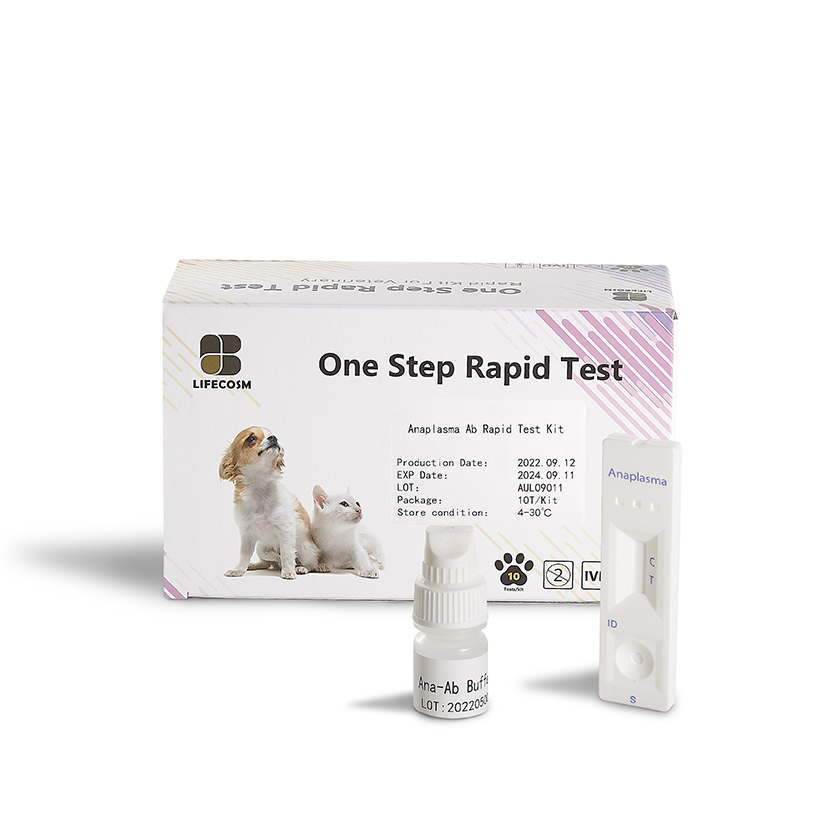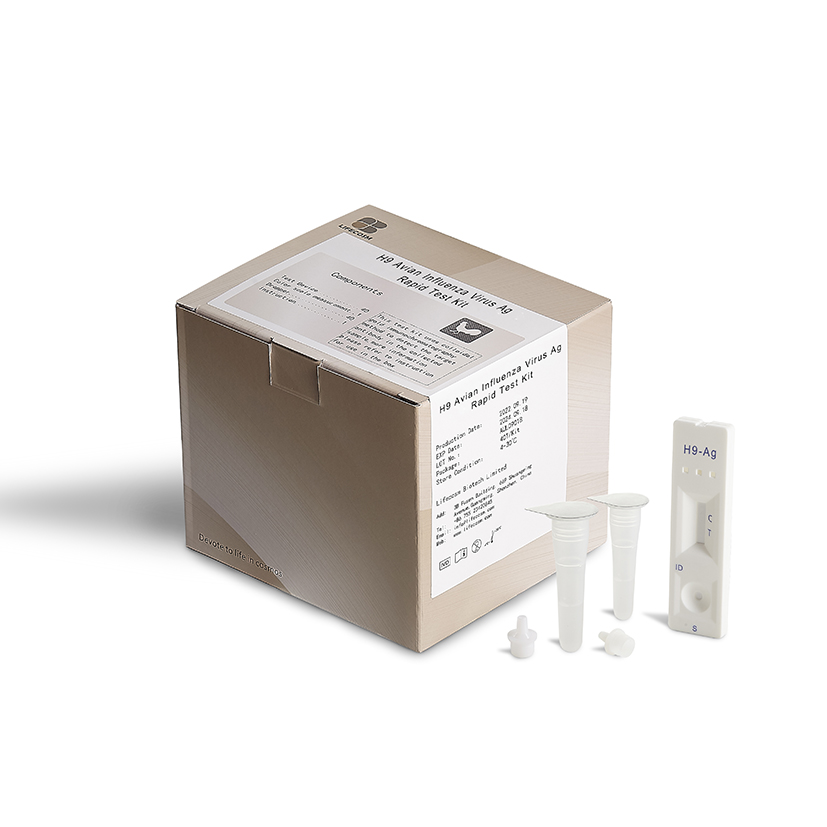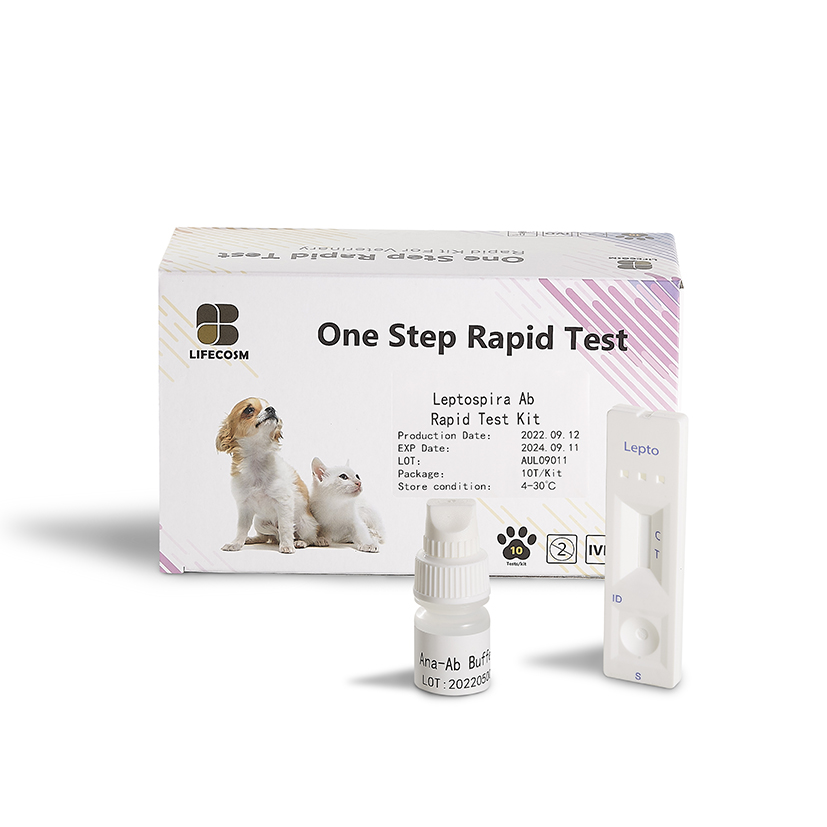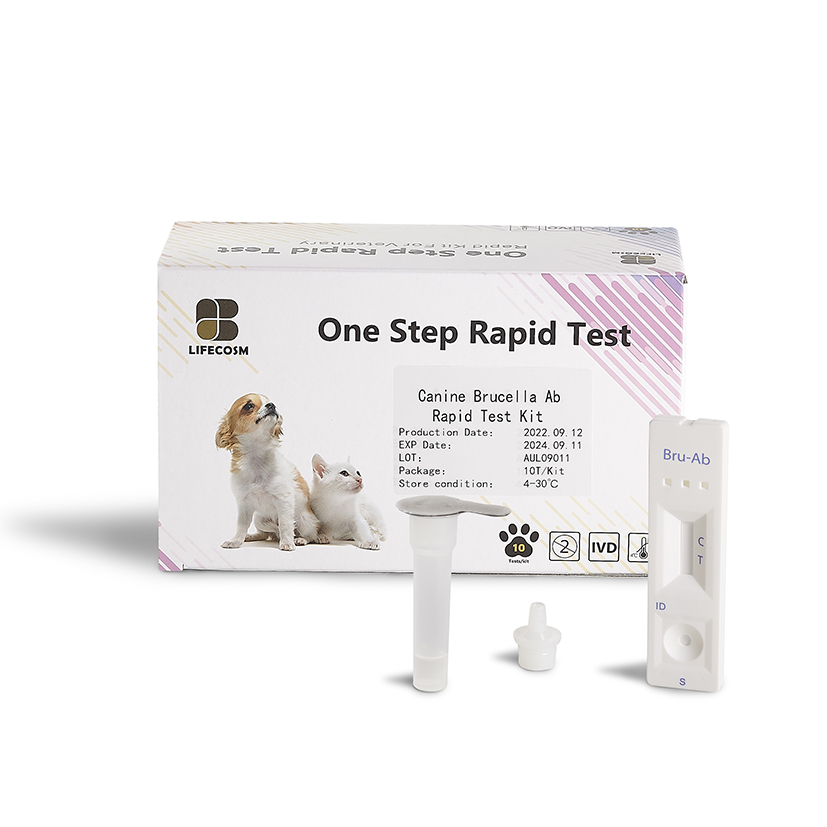
Products
Canine Coronavirus Ag Test Kit
| Summary | Detection of specific antigens of canine coronavirus
within 15 minutes |
| Principle | One-step immunochromatographic assay |
| Detection Targets | Canine Coronavirus antigens |
| Sample | Canine Feces |
| Quantity | 1 box (kit) = 10 devices (Individual packing)
|
|
Stability and Storage |
1) All reagents should be stored a Room Temperature (at 2 ~ 30℃) 2) 24 months after manufacturing.
|
Information
Canine Coronavirus (CCV) is a virus that affects the intestinal tract of dogs. It causes a gastroenteritis similar to parvo. CCV is the second leading viral cause of diarrhea in puppies with canine Parvovirus (CPV) being the leader.
Unlike CPV, CCV infections are not generally associated with high death rates.
CCV is a highly contagious virus affecting not only puppies, but older dogs as well. CCV is not new to the canine population; it has been known to exist for decades. Most domestic dogs, especially adults, have measurable CCV antibody titers indicating that they were exposed to CCV at some time in their life. It is estimated that at least 50% of all virus-type diarrhea is infected with both CPV and CCV. It is estimated that over 90% of all dogs have had exposure to CCV at one time or another. Dogs that have recovered from CCV develop some immunity, but the duration of immunity is unknown.
Principle of the Test
The Canine Coronavirus (CCV) Antigen Rapid Test Card uses rapid immunochromatographic detection technology to detect canine coronavirus antigens. Samples taken from the rectum or feces are added to the loading wells and moved along the chromatography membrane with colloidal gold-labeled anti-CCV monoclonal antibodies. If CCV antigen is present in the sample, it binds to the antibody on the test line and appears burgundy. If the CCV antigen is not present in the sample, no color reaction occurs.
Contents
| revolution canine |
| revolution pet med |
| detect test kit |
revolution pet


